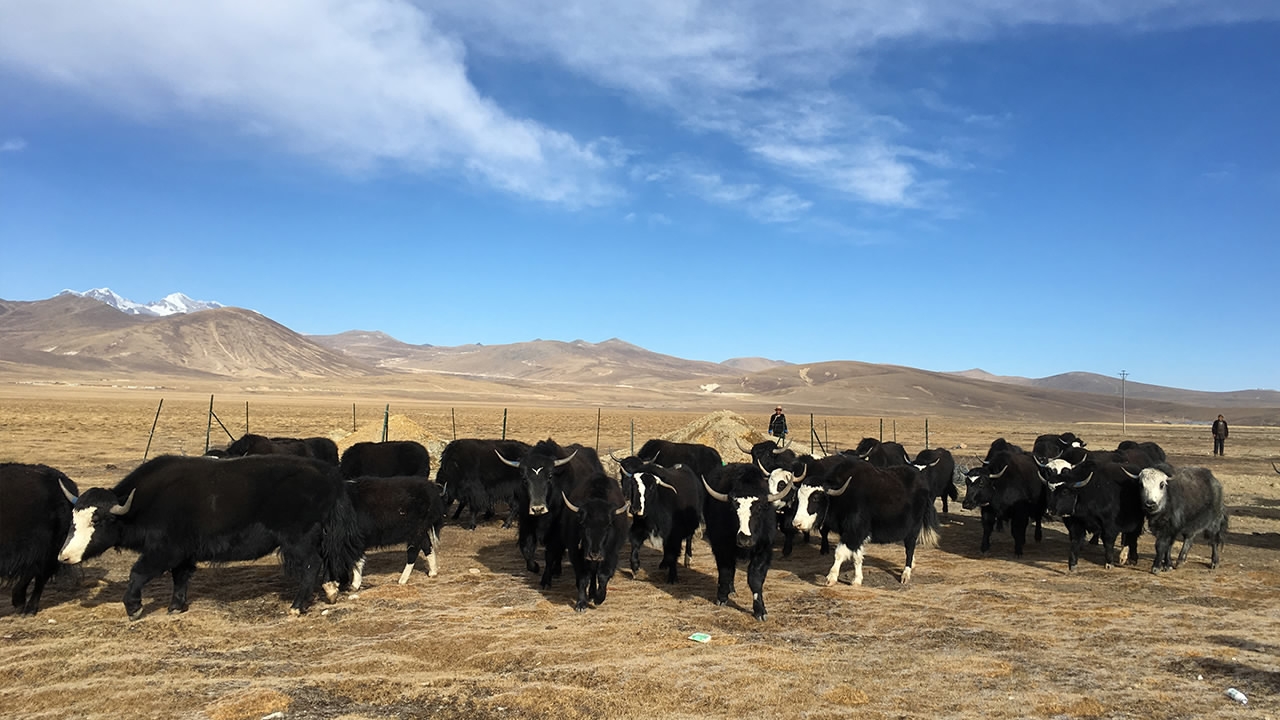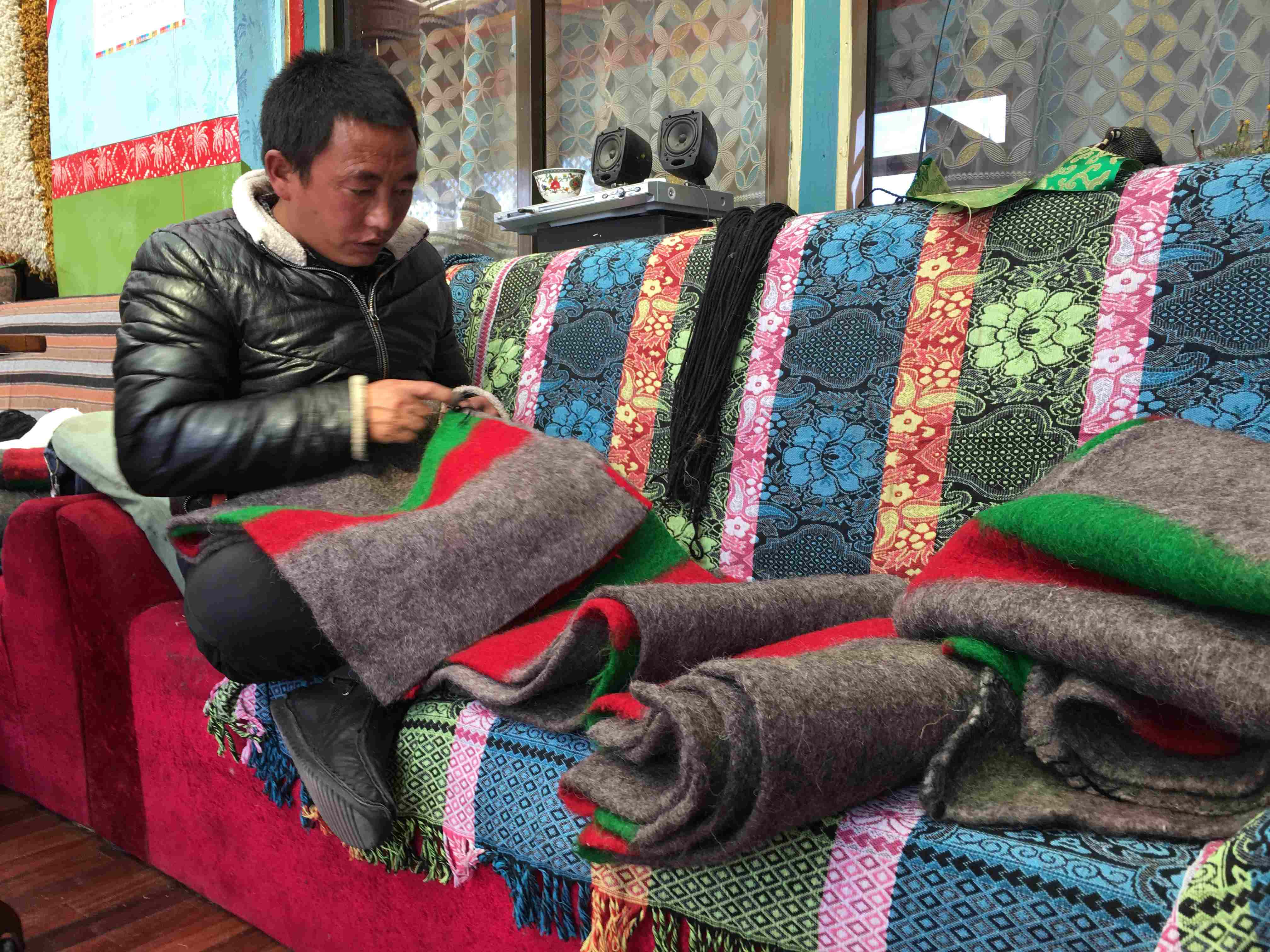
Politics
19:37, 28-Dec-2017
Rural revitalization in Tibet border area creates opportunities for locals
By Yang Jinghao, Luo Caiwen

Yadong County is a sliver of land in the south of the Tibet Autonomous Region, dipping down between India to the west and Bhutan to the east. In the border area, traditional yak herding is experiencing a revival.
A company in Pali Township is spearheading this development, calling for herding families to become shareholders with their yaks and pasture. So far, 600 families in the county have done so, earning up to 650 yuan (99 US dollars) per yak each year in the first three years in addition to their share of the profits.
“Ahead of the establishment, the local government had repeatedly explained to the villagers the advantages of joining the company, and asked them to make the decision on their own will,” said Pasang Wangdi, the general manager of the Pali Yak Industry Development Company in the township, where the yaks are considered to have superior quality.
Many of the herders also work for the company.
76-year-old Mima is a local herder who has three family members working there, each earning 3,000 yuan (459 US dollars) per month.
“It’s a lot better than before when the feeding cost was also very high,” he said.
Yaks have long been the most important resource for life and agricultural production for Tibetans. Now the company has some 8,000 yaks in total, which are expected to create far more profits with modern feeding and management.

Yaks of the Pali Yak Industry Development Company graze. /CGTN Photo
Yaks of the Pali Yak Industry Development Company graze. /CGTN Photo
With much of the labor taken care of, villagers now have more options to make a living. Some are even trying to start their own business, such as Tashi Tezin, who was in poverty in 2015, but set up a small cooperative making Tibetan handicrafts in November. Its major raw material is yak hair.
“Traditional weaving in our town is in danger of extinction as most of the craftsmen are getting old. I hope the techniques can be preserved through my efforts,” Tashi told CGTN.
Tashi’s cooperative is based in his own new house, which was provided by the government as a way to help him get out of poverty. Now, the employees here are rushing out different items, such as carpet and bags, for a market debut.

A craftsman works in the cooperative established by Tashi Tezin in November. /CGTN Photo
A craftsman works in the cooperative established by Tashi Tezin in November. /CGTN Photo
Over the past few years, apart from government assistance to local villagers’ livelihoods and industrial development, the authorities have also been trying to advance local government initiatives, such as promoting border trade.
“Industrial development will still be our priority in the coming years. But border trade is also an important way to help local residents increase their income,” said Shu Chengkun, the Party chief of Yadong County.
Authorities have established a border trading base with an investment of 64 million yuan (9.8 million US dollars), as well as a corresponding chamber of commerce. More people are expected to benefit from the business with neighboring countries in the coming years.

Trout farming is one of the 10 specialized industries that Yadong County has developed during the past years. /CGTN Photo
Trout farming is one of the 10 specialized industries that Yadong County has developed during the past years. /CGTN Photo
Tashi said his long-term goal is to expand his business through e-commerce. Meanwhile, he hopes his products will be part of the growing cross-border trade.
2882km

SITEMAP
Copyright © 2018 CGTN. Beijing ICP prepared NO.16065310-3
Copyright © 2018 CGTN. Beijing ICP prepared NO.16065310-3